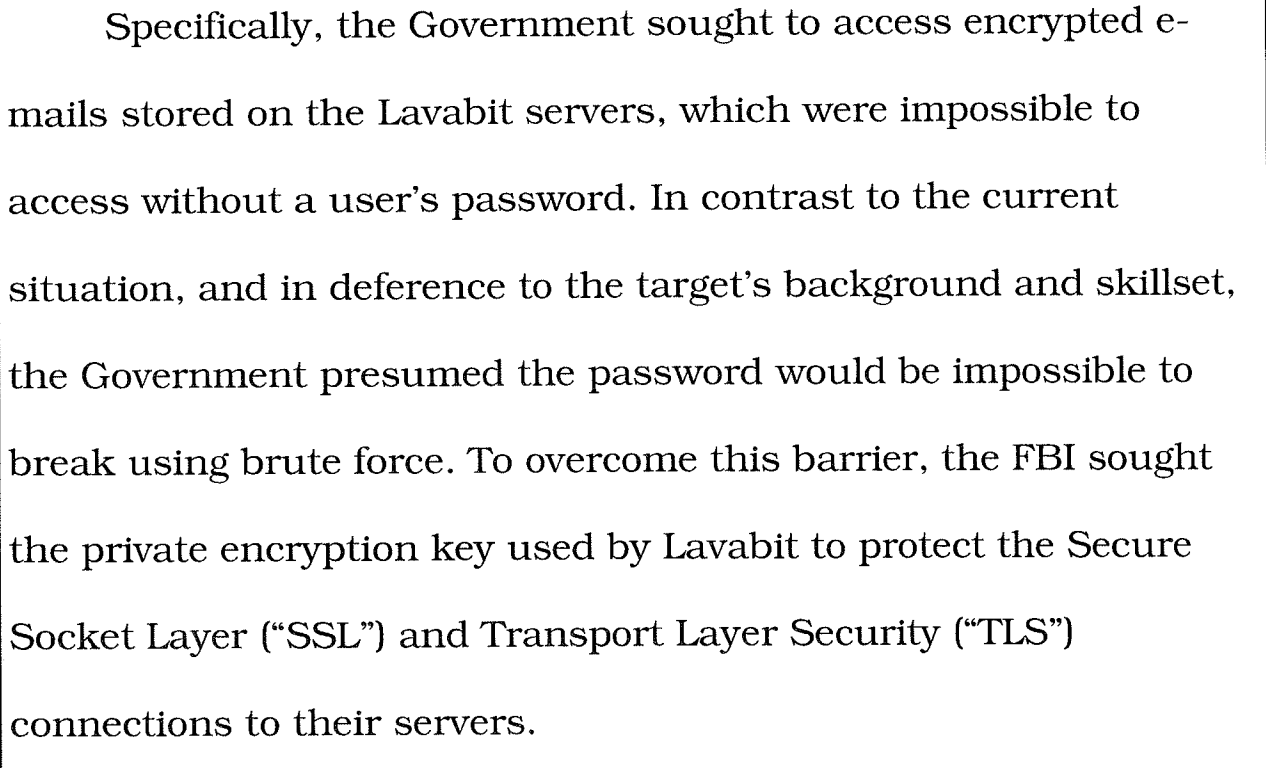DOJ to Apple: Start Cooperating or You’ll Get the Lavabit Treatment
DOJ has submitted its response to Apple in the Syed Farook case. Amid invocations of a bunch of ominous precedents — including Dick Cheney’s successful effort to hide his energy task force, Alberto Gonzales effort to use kiddie porn as an excuse to get a subset of all of Google’s web searches, and Aaron Burr’s use of encryption — it included this footnote explaining why it hadn’t just asked for Apple’s source code.
That’s a reference to the Lavabit appeal, in which Ladar Levison was forced to turn over its encryption keys.
As it happens, Lavabit submitted an amicus in this case (largely arguing against involuntary servitude). But as part of it, they revealed that the reason the government demanded Lavabit’s key is because “in deference to [Edward Snowden’s] background and skillset, the Government presumed the password would be impossible to break using brute force.”
But that says that for phones that — unlike Farook’s which had a simple 4-digit passcode — the government maintains the right to demand more, up to and including their source code.
The government spends a lot of time in this brief arguing it is just about this one phone. But that footnote, along with the detail explaining why they felt the need to obtain Lavabit’s key, suggests it’s about far more than even Apple has claimed thus far.

